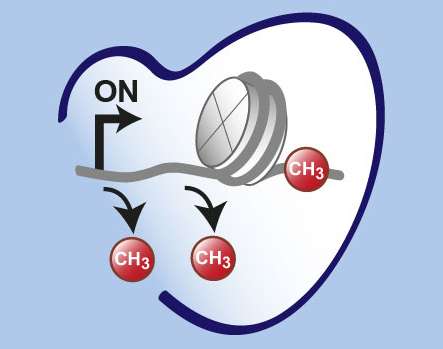Pharmacologists identify switches that play an important role for the cardiac gene program

Freiburg pharmacologists have succeeded in mapping the epigenome of cardiac muscle cells. They hope the findings will lead to new insights into the development of congenital heart defects and chronic heart failure. The scientists published their findings in the journal Nature Communications.
The epigenome is the totality of epigenetic mechanisms that decide which genes are active in a cell and which are not. Changes in internal or environmental conditions, such as nutrition, stress, or drugs, can leave behind epigenetic patterns. Such mechanisms play an important role in the development of cancer, but their significance for heart disease is as yet largely unknown.
The heart accomplishes enormous feats during development and in the growth process after birth. It is the first organ to be formed in the growing embryo, and it continuously supplies the entire body with oxygen and nutrients. The nucleus of cardiac muscle cells assumes the central function to control the gene expression program.
A team led by Dr. Ralf Gilsbach and Prof. Dr. Lutz Hein has now developed a novel method for isolating nuclei of cardiac muscle cells from heart tissue consisting of various types of cells. The scientists applied the method of next generation DNA sequencing to the isolated nuclei to create high-resolution maps of DNA methylation - one of the most important epigenetic mechanisms for the regulation of gene activity - as well as further epigenetic markers of all of the genes. This enabled them to identify the epigenetic switches that trigger the switching of the cardiac gene program during birth and in the case of chronic cardiac failure. Now the researchers want to refine the method in order to also conduct epigenetic analyses on miniscule tissue biopsies, such as those taken during cardiac catheter examinations.
More information: Gilsbach R et al., Dynamic "DNA methylation orchestrates cardiomyocyte development, maturation and disease," Nature Communications, 22.10.2014, DOI: 10.1038/ncomms6288















